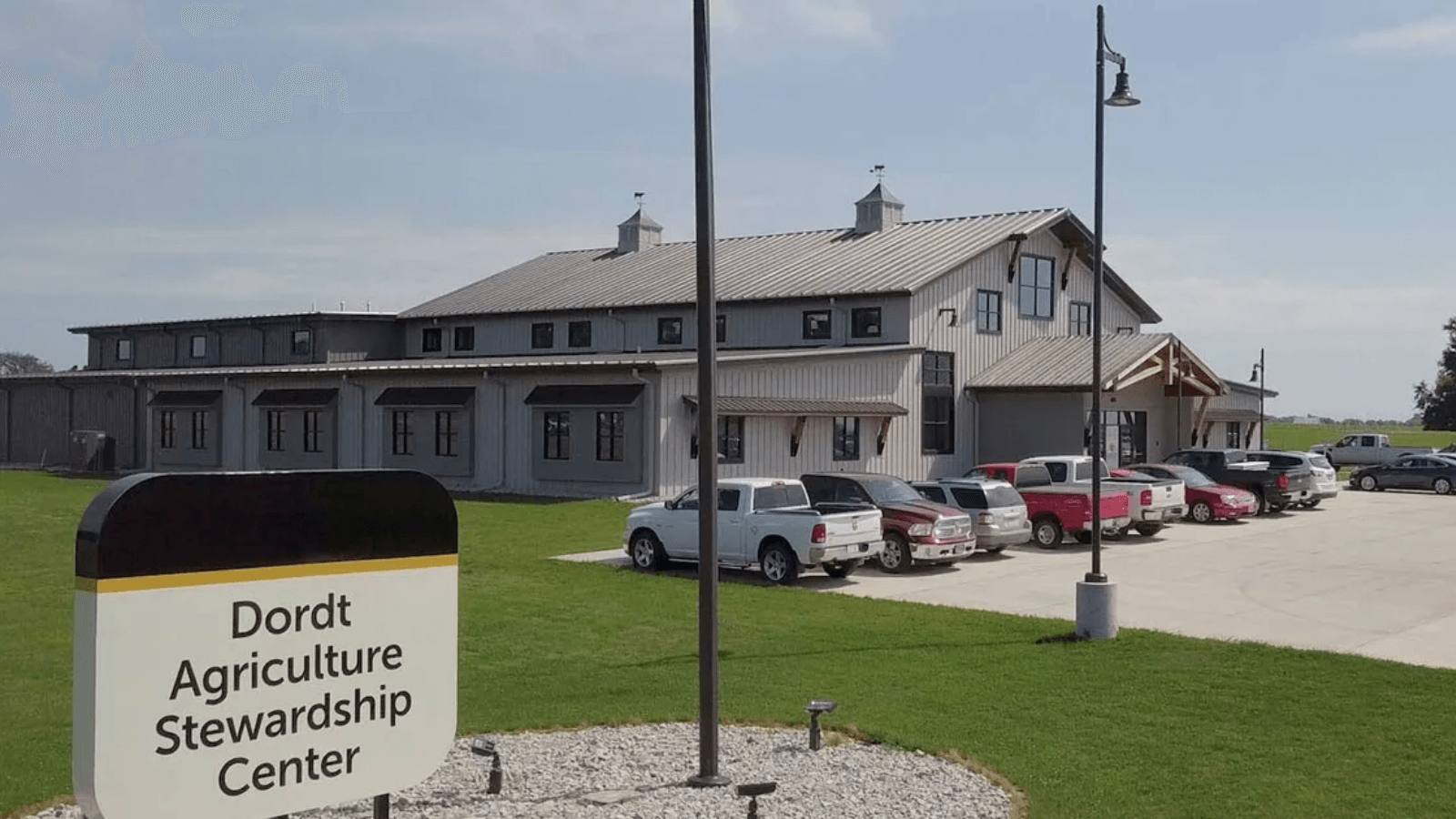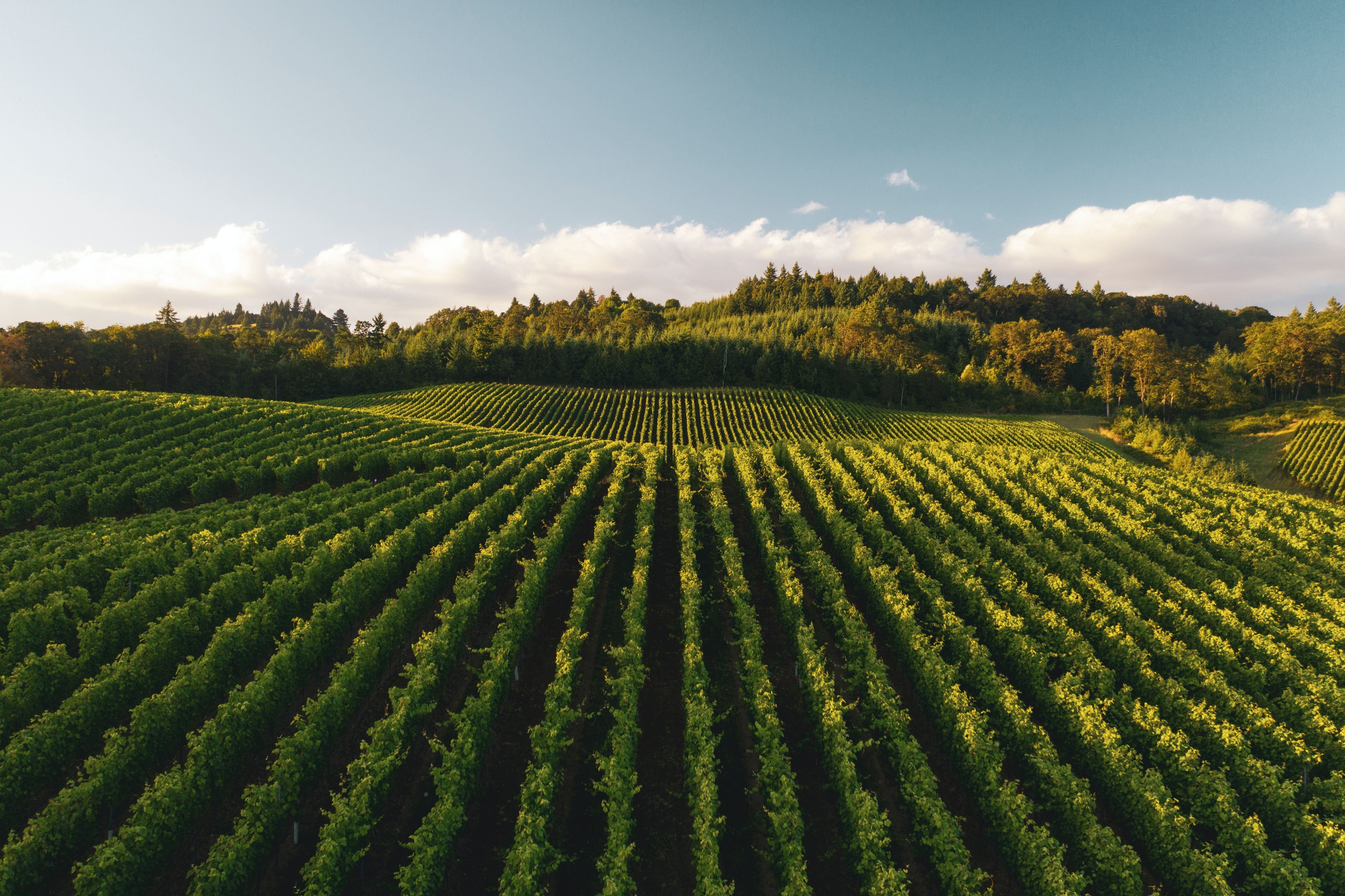
Situated in the rolling loess landscape of NW Iowa’s Sioux County, the Agriculture Stewardship Center (ASC) is a 200-acre teaching and research farm supporting the educational activities of the Dordt University Agriculture Department. Operating since the early 1980s, the Dordt ASC supports teaching with hands-on opportunities for several emphasis areas in agriculture, including agri-business, agronomy, animal science, and agriculture education. The Agriculture Department also researches agronomy topics of interest to local farmers, such as planting date, pest management practices, and cover cropping.
Agriculture is an interesting amalgam, being a production industry with resource management and creation care. My parents always kept those different aspects of agriculture in healthy tension as they cared for their farmland and livestock on our family dairy in Alberta, Canada. I remember Dad explaining to my younger self about how God created various aspects of nature to function well, and how we could work with that function to raise our crops and cattle. My own Dordt education (grad. 2003) stimulated an increased interest in the science and the application of those same principles. So when God later provided the opportunity to join Dordt’s faculty, I said to my wife, Kristi, “I want to see if I can have a role in facilitating the kind of training I received.” God’s answer was “Yes,” and I joined the Dordt Agriculture Department in 2015.
Agriculture, of course, is about food. Scripture records God providing food for his people, in ways that appear both common and miraculous. (A non-comprehensive list that comes to mind includes Genesis 1:29; Leviticus 25:1-7; 1 Kings 17, and passages in Leviticus, Numbers, Deuteronomy, and elsewhere about gifts of firstfruits.) God’s people are also to be caretakers of creation (Genesis 1:28, 2:15), stewarding it as God’s provision to all creatures, which he also commissioned to flourish (Genesis 1:22). What I find beautiful about the work of Christians in agriculture is that the cultivation of food and the care of creation are two sides of the same calling.
At Dordt University, we are blessed to have the Agriculture Stewardship Center (ASC) as a resource in our work to teach agriculture and to demonstrate environmental sustainability practices. My students think about agricultural drainage water quality, for example, as we work with edge-of-field practices we have at the ASC: a stream-side saturated buffer and a nitrate-filtering bioreactor. We have also begun planning a long-term study to investigate the interactions of various crop and soil management practices on soil health.
Our faculty recently reviewed the mission and policies for the ASC. This review was a blessing as we reflected on the foundation these statements provide, and as we reaffirmed our commitment to working out the mission:
“The purpose of the ASC is to serve the educational needs of students, faculty, and community members by giving them the opportunity to experience, research, and implement agricultural practices, systems, and management strategies that enhance environmental quality, promote stewardly production, build community, are economically viable, and reflect God’s love for the world He has made and entrusted to our care.”
I love the recognition in this statement that good agriculture enhances so many things. Agriculture is such a deeply interconnected human and ecological discipline. Many of our students come to see agriculture as a calling from God to his service. This is what one of our junior Agriculture: Plant Science students, Brady Van Meeteren, wrote:
“My experience as a student in the Dordt University Agriculture Department has taught me how to approach my work in light of God’s promises and commands. I have learned about the incredibly diverse world God has both created and promised to uphold, and how, as agriculturalists, we have been commanded to steward this gift. In my study and work as an agronomist, I see this responsibility influencing the way I utilize agronomic practices that promote natural soil structure, nutrient cycling, and habitats for more than just a crop monoculture. This challenges me to look beyond myself…to look at the bodies of water downstream from my cropland, to look at the wildlife whose habitat overlaps with my field, and to look at the people I am feeding.”
Praise God for the good work he calls us to in agriculture!
Jeremy Hummel is a Professor of Agriculture at Dordt University in Sioux Center, Iowa.

